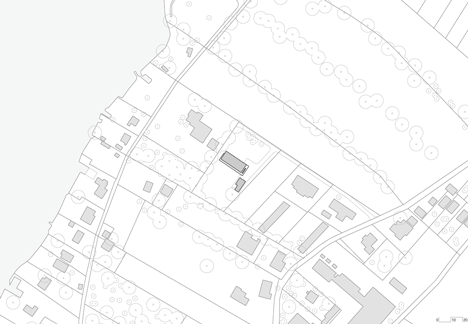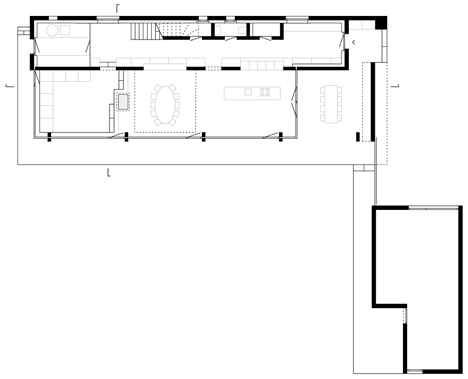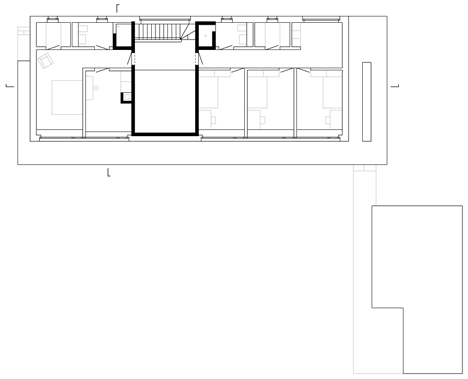Slabs of concrete frame glass walls of house near a Swiss lake by MLZD
The glazed lower level of this house by Switzerland's Lake Biel are sandwiched between two concrete slabs, helping to protect living spaces and an outdoor terrace from flooding (+ slideshow).
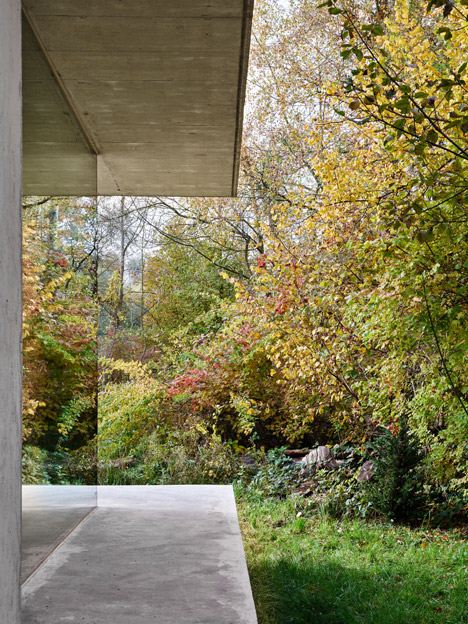
MLZD was asked to design the house for a couple – the same clients as for one of the Swiss architecture studio's first projects, back in 2000. They wanted a bigger house to accommodate their growing family.
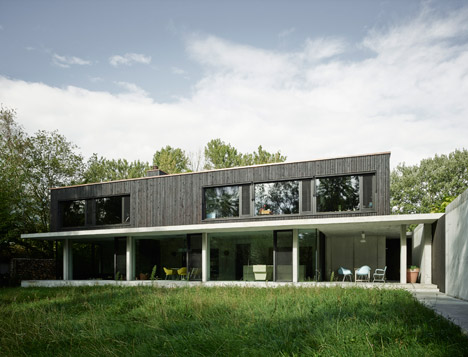
The clients picked a spot on the south-east side of Lake Biel, also known as Lake Bienne, on the outskirts of rural village Ipsach.
Glazed walls were added to frame views of the garden and lake from the ground-floor living space, while the bedroom that make up the upper floor are clad in dark timber.
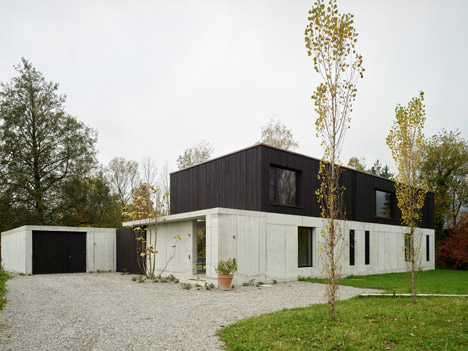
The meadows and woodland that surround the property are occasionally swamped when the lake bursts its banks, and so the architects chose a sturdy concrete slab construction to keep the property watertight.
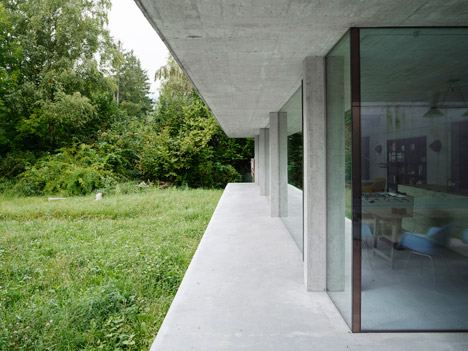
A thick concrete base slab elevates the house above its marshy garden, and provides a terrace for outdoor dining.
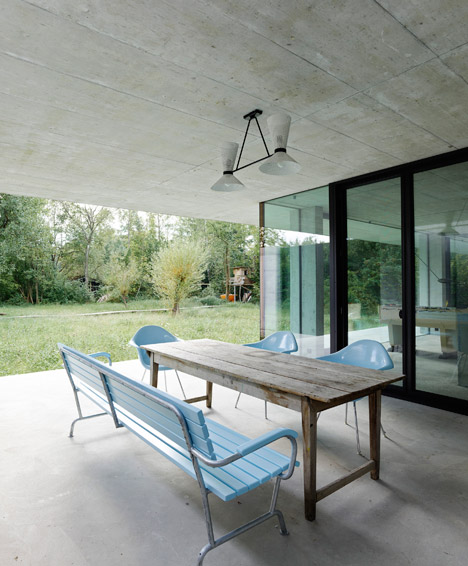
"The materialisation of the building is simple and reduced," said the studio in a project statement. "While raw concrete dominates the ground floor, the upper floor is kept completely in dark wood."
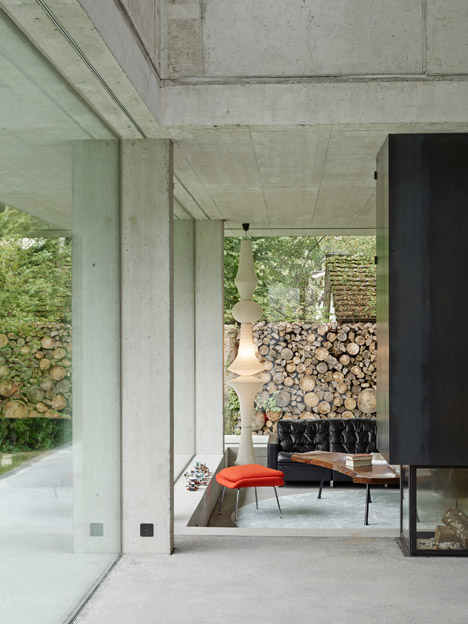
"Top and bottom are spatially, structurally and in material interlocked with each other," added the firm.
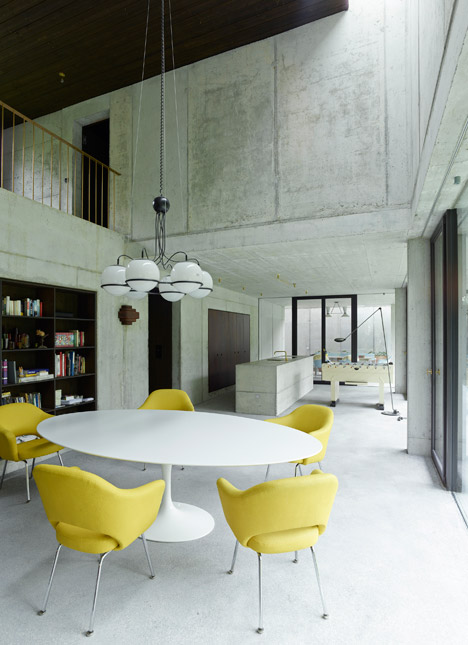
The building stretches horizontally across the site, separating a driveway and carpark nearest the road from the secluded garden to the rear.
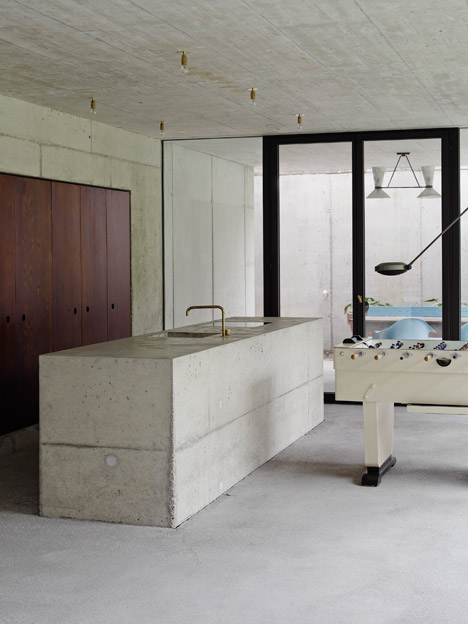
Concrete and timber walls provide increased privacy from the street, while sliding glazing in the pavilion-like construction at the rear opens into the densely vegetated garden.
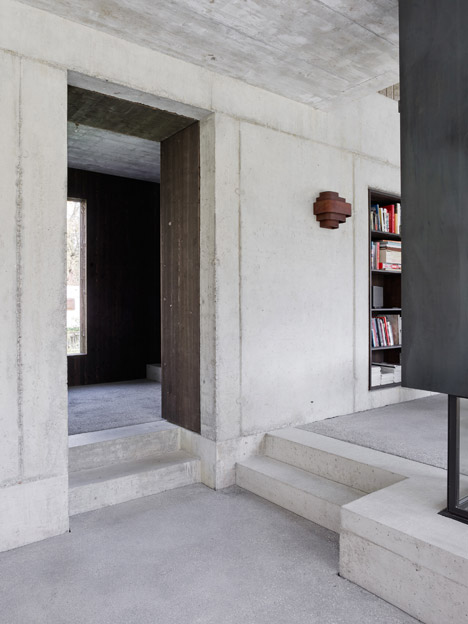
The concrete is left exposed across the walls, ceilings and floors of the ground floor living spaces, providing unity between indoor and outdoor spaces.
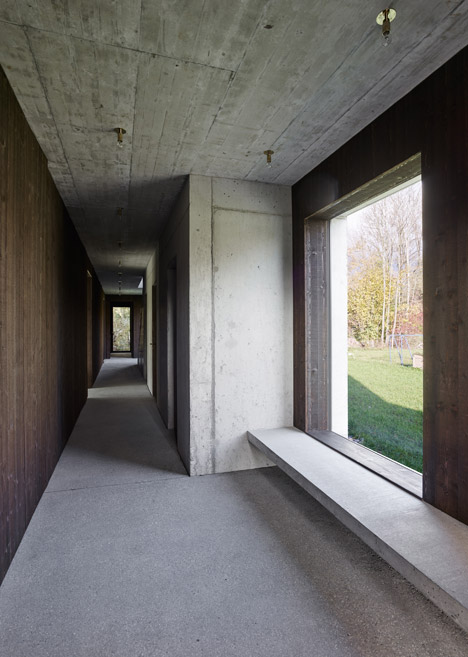
"The house is searching for intense interior-exterior connections," said the studio. "Concrete is used inside and outside and helps to blur the threshold."
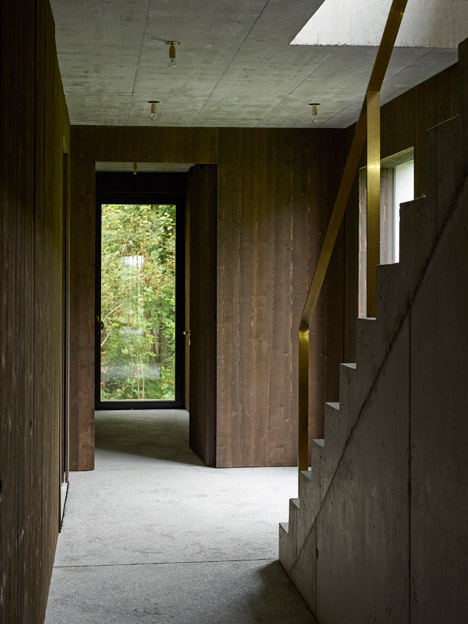
Concrete elements creep into the interior of the upper floor and vice-versa wood into the ground floor.
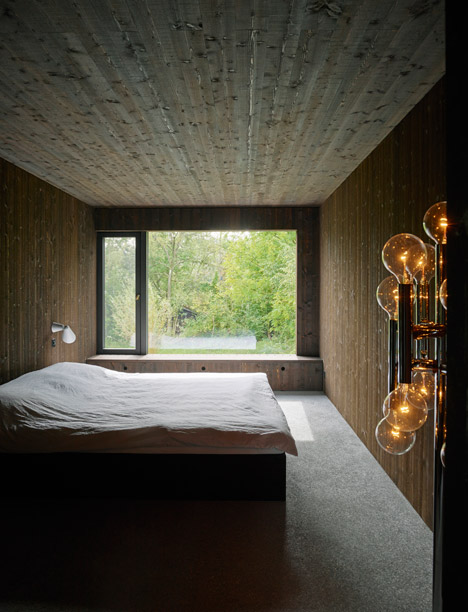
Curving brass bannisters enclose a flight of concrete steps that lead from a wood-lined hallway to the bedrooms on the floor above.
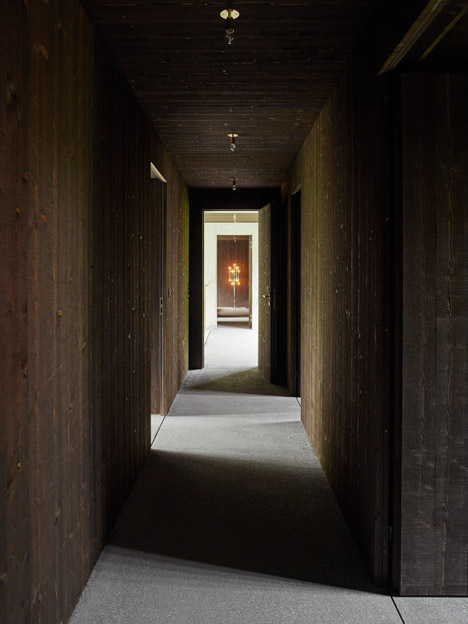
An atrium between three children's bedrooms and the master suite provides a double-height dining space, which is the focal-point of the family home.
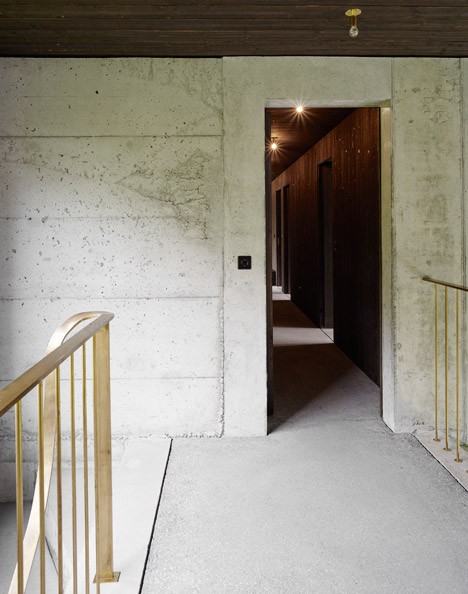
"This is the building's heart and the main whereabouts of the family," MLZD's Andreas Frank told Dezeen.
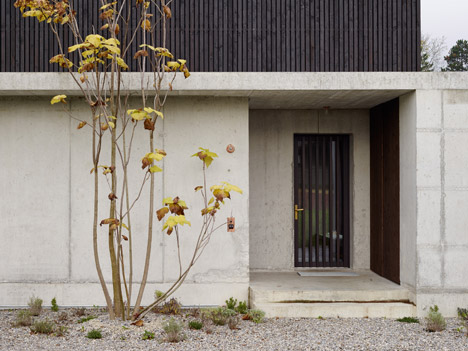
MLZD, which was set up in 1997, has completed a number of projects in western Switzerland including a hilltop events space with panoramic glazing and a bird watching centre with rammed-earth walls.
Photography is by Alexander Jaquemet.
